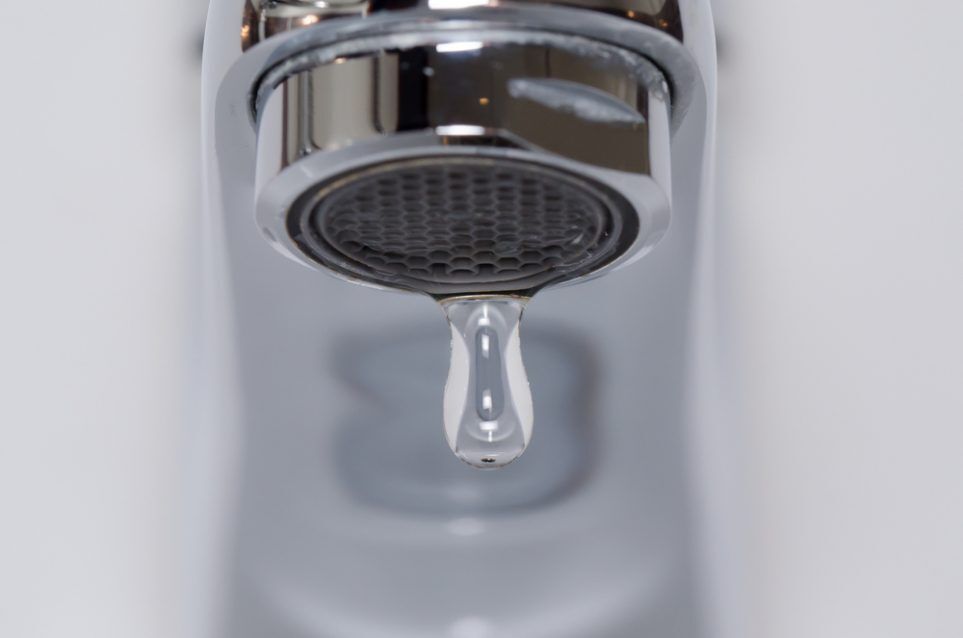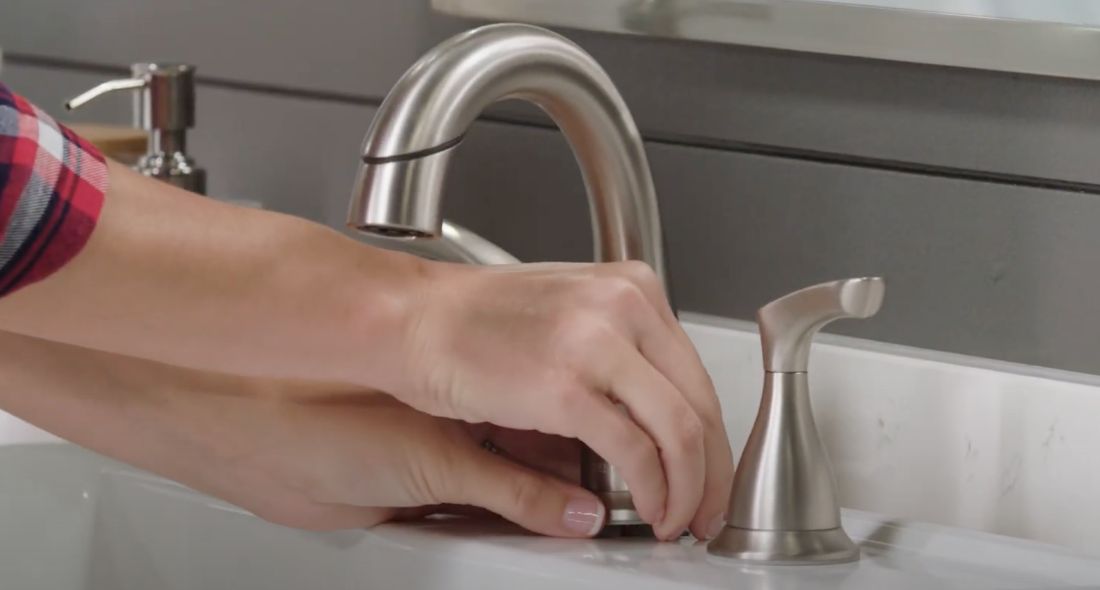Discovering the Significance of Repairing a Broken Faucet
Discovering the Significance of Repairing a Broken Faucet
Blog Article
They are making several great points relating to What Causes Leaky Faucets & How To Fix Them overall in this content below.

Trickling taps may seem like a minor trouble, however their influence surpasses simply the annoyance of the audio. From wasting water to sustaining unneeded monetary prices and health threats, ignoring a dripping tap can lead to different effects. In this short article, we'll delve into why it's vital to address this usual family issue quickly and properly.
Waste of Water
Ecological Effect
Trickling taps contribute dramatically to water wastefulness. According to the Epa (EPA), a solitary tap trickling at one drip per secondly can lose greater than 3,000 gallons of water per year. This not only pressures water resources yet likewise impacts environments and wildlife dependent on them.
Financial Prices
Raised Water Costs
Beyond the ecological effect, trickling faucets can inflate water costs significantly. The gathered wastefulness with time equates right into higher energy expenses, which could have been avoided with prompt fixings.
Potential Property Damage
Moreover, extended leaking can cause damage to components and surfaces surrounding the faucet. Water buildup can create staining, corrosion, and even structural problems if left unattended, resulting in extra repair work prices.
Health and wellness Worries
Mold And Mildew and Mildew Growth
The constant presence of dampness from a trickling faucet creates an ideal setting for mold and mildew and mildew growth. These fungis not only compromise interior air high quality but additionally present health and wellness risks, especially for individuals with respiratory system problems or allergies.
Waterborne Conditions
Stagnant water in dripping taps can become a breeding place for germs and other virus, raising the danger of waterborne diseases. Impurities such as Legionella germs grow in stagnant water, potentially causing major ailments when ingested or breathed in.
DIY vs. Specialist Repair work
Pros and Cons of Do It Yourself Repair
While some may try to repair a trickling faucet themselves, do it yourself repairs include their very own collection of challenges. Without correct knowledge and tools, do it yourself attempts can worsen the issue or result in insufficient repair work, lengthening the trouble.
Benefits of Employing a Specialist Plumber
Hiring a professional plumber makes sure that the underlying cause of the leaking tap is addressed efficiently. Plumbing professionals have the expertise and devices to identify and fix tap issues effectively, conserving time and lessening the threat of more damage.
Step-by-Step Guide to Repairing a Dripping Faucet
Tools Needed
Prior to trying to deal with a dripping faucet, gather the necessary tools, including an adjustable wrench, screwdrivers, substitute components (such as washing machines or cartridges), and plumber's tape.
Usual Faucet Issues and Their Solutions
Recognize the kind of tap and the certain concern triggering the drip. Typical issues include damaged washers, rusty valve seats, or damaged O-rings. Refer to supplier instructions or on the internet tutorials for detailed support on repair work.
Safety nets
Routine Maintenance Tips
To stop leaking faucets, perform routine maintenance such as cleansing aerators, inspecting for leakages, and changing damaged parts quickly. Furthermore, think about installing water-saving tools or updating to much more efficient components.
Value of Prompt Repair Works
Dealing with dripping taps as soon as they're noticed protects against additional water wastage and possible damage, ultimately conserving both water and money in the future.
Effect On Building Value
Perception of Well-Maintained Building
Preserving a residential or commercial property in good condition, consisting of attending to maintenance concerns like dripping taps, enhances its viewed worth and value amongst potential purchasers or tenants.
Impact on Resale Value
Features with well-maintained plumbing components, including faucets, command greater resale worths in the realty market. Resolving leaking taps can add to a positive perception throughout home examinations and settlements.
Ecological Responsibility
Individual Contribution to Preservation
Taking responsibility for taking care of trickling taps lines up with wider initiatives towards water conservation and environmental sustainability. Every person's activities jointly make a significant effect on maintaining priceless sources.
Lasting Living Practices
By prioritizing prompt repair work and taking on water-saving behaviors, individuals contribute to sustainable living methods that profit both existing and future generations.
Conclusion
Addressing a dripping faucet exceeds simple comfort; it's a crucial action towards conserving water, reducing financial costs, and protecting health and wellness and home. Whether with do it yourself repair services or expert help, acting to take care of leaking faucets is a little yet impactful method to promote responsible stewardship of resources and add to a much healthier, extra lasting future.
How to Fix a Leaky Faucet: Step-by-Step Repair Guide
A leaky faucet may seem like a simple annoyance, but if it's not fixed promptly, that leak could cost hundreds to potentially thousands. From water damage to mold, mildew, and high water bills, even a tiny leak can be catastrophic if left unattended. Damage like this can even affect the overall value of your home, so it's important to take the right approach for leaky faucet repair. You may need the help of a plumber in some cases, but we've got a few tips you can try on how to fix a leaky faucet before calling the pros.
Four Faucet Types
When you're learning how to fix a leaky faucet, the first step is knowing what kind of faucet you're working with! There are four common types.
Cartridge Faucets
Cartridge faucets come in one- or two-handled varieties. In one-handled cartridge faucets, hot and cold water combines in a single cartridge. In the two-handled versions, hot and cold water are controlled separately and mixed in the faucet.
Ball Faucets
Ball faucets have a single lever you push up and down to adjust the pressure and rotate to change the temperature. A slotted metal ball controls the amount of water allowed into the spout.
Compression Washer Faucets
They're the oldest type of faucet, but they're still used in many homes — especially older ones. Compression faucets have two separate handles that, when turned, raise or lower the washer that seals a water valve. This valve stops water from flowing through the faucet when it is turned off.
Disc Faucets
Disc faucets rarely need to be repaired due to their maintenance-free design. The water flow is controlled by two discs — the upper one raises and lowers against a fixed lower disc, creating a watertight seal. If your disc faucet starts leaking, you may need to replace the seals or clean residue buildup from the inlets.
Fixing a Leaky Faucet
Step 1: Turn Off the Water
Whether you're learning how to fix a leaky bathtub faucet or how to fix a leaky kitchen faucet, always turn off the water supply to your working area when you're fixing a leak. The last thing you want is a flood added to your list of things to fix.
Look for the shutoff valves below your sink or around the tub and turn them clockwise to stop the water flow. If your faucet doesn't have shutoff valves, you may need to turn off the water for the whole house. Check to make sure it's off by turning the faucet on. If nothing comes out, you're ready to start the repair.
Step 2: Take Apart the Faucet
How you disassemble your faucet depends on the type of fixture you have. You can use a flathead screwdriver to remove the caps on top of the handle or handles for cartridge and compression faucets. Inside, you should see handle screws. Unscrew these with a screwdriver to remove the handle.
Disc- and ball-style faucets will typically have an inlet screw near the handle, and removing that will reveal the interior of the faucet.
Detach the Valve Stem
For cartridge- and compression-style faucets, you'll see the inner valve stem or cartridge once you remove the faucet handles. If you have a compression faucet, unscrew the brass valve stem. If you have a cartridge faucet, pull out the cartridge. If your cartridge has been in place for a while, it may require some tools or extra force to remove it due to mineral deposits.
Examine and Replace Parts
Once you've removed the parts, check them out to confirm what needs to be replaced. You may see corroded rubber washers, O-rings, stems, or cartridges. On a ball-style faucet, check the seats and springs for damage.
If you need to repair a leaky disc faucet, check the inlet and seals on the lower disc.
Once you determine what parts must be replaced, visit your local hardware store. Bring the damaged parts with you to ensure you can purchase the correct components to replace them.
Clean Valves and Faucet Cavity
If you've removed a stem or cartridge, you may notice mineral buildup in the faucet's threads. Use white vinegar to clean the valve seat by soaking it for a few minutes, then scrub it away with a soft toothbrush and rinse with warm water. You can also clean the interior of the faucet in the same way.
Reassemble the Faucet
Once your faucet is cleaned and the required parts have been replaced, it's time to reassemble it. Put the pieces back together and slowly turn the water supply back on. Doing this slowly is crucial because too much initial water pressure can damage the new hardware you've just installed.
https://homewarranty.firstam.com/blog/how-to-fix-leaky-faucet

I hope you liked our part about How to Fix a Dripping or Leaky Faucet . Thanks so much for finding the time to read through our blog. Don't hesitate to take the opportunity to promote this entry if you appreciated it. I am grateful for being here. Please stop by our blog back soon.
Report this page